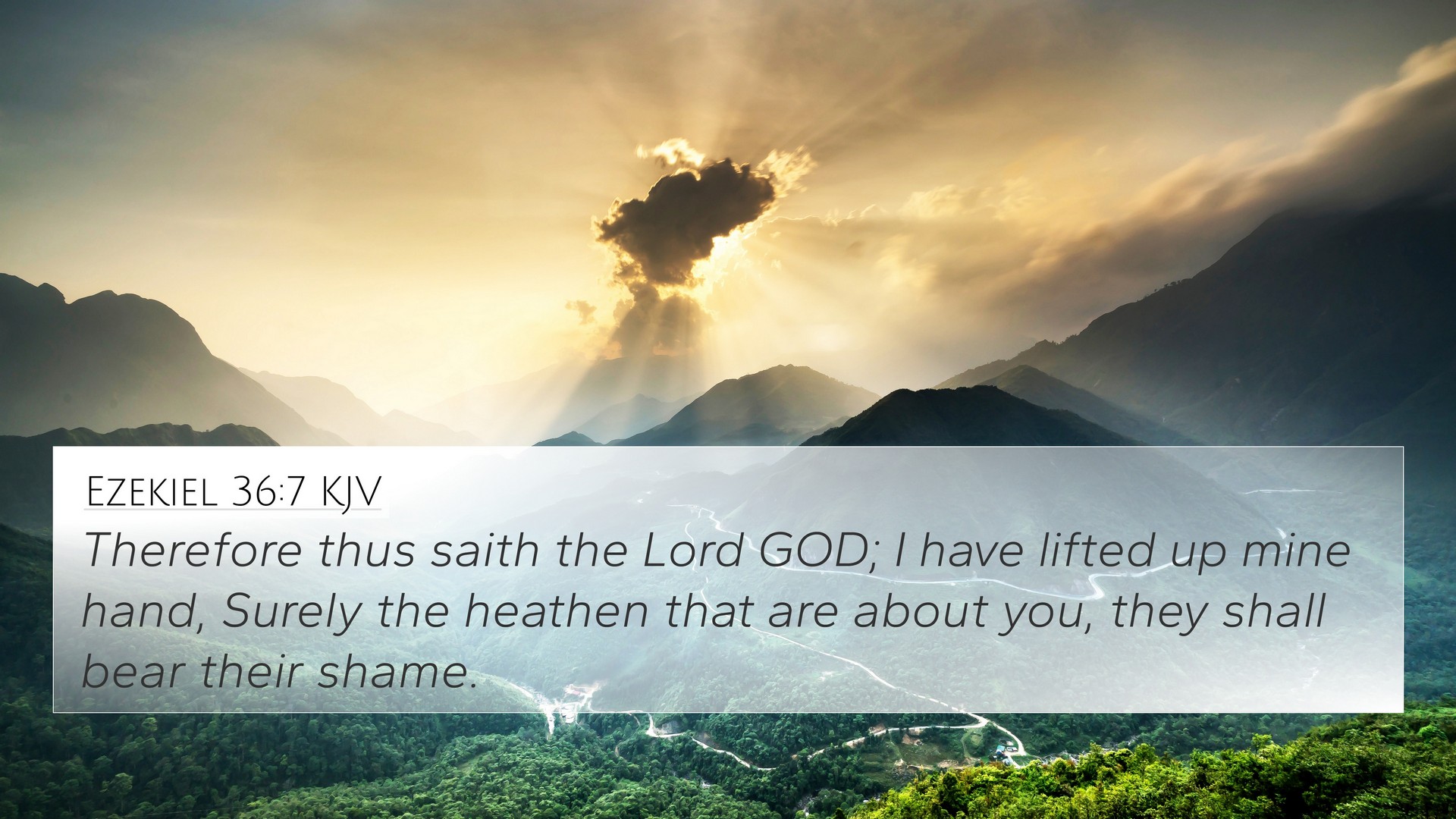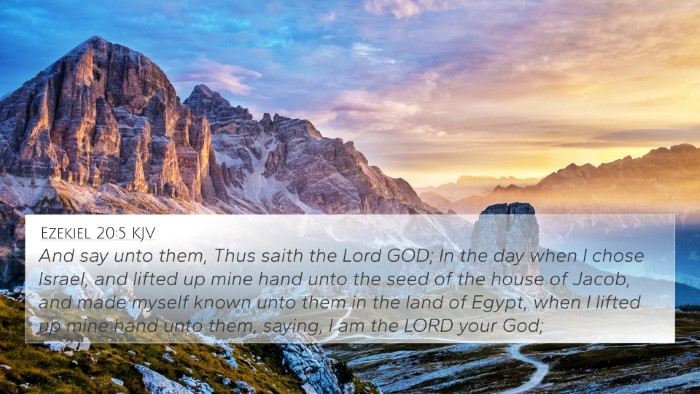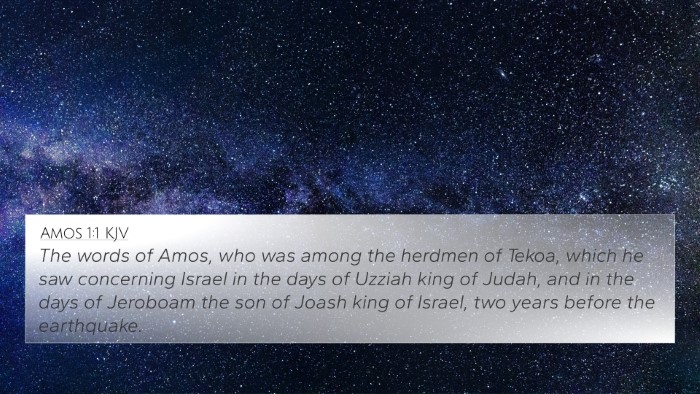Ezekiel 36:7 - Understanding the Verse
The verse Ezekiel 36:7 states: "Therefore thus says the Lord God: I have lifted up My hand in an oath that surely the nations that are around you shall bear their own shame." This passage underscores God's sovereignty and His promises to His people amidst the context of their exile.
Commentary Insights
Insights from various public domain commentaries reveal a rich tapestry of meanings and thematic connections:
- Matthew Henry's Commentary:
Henry emphasizes God's active role in ensuring justice. He interprets the lifting of God's hand as a symbol of a divine pledge, assuring the Israelites that their enemies will face consequences for their deeds. This shows a theme of divine retribution and the vindication of God's people.
- Albert Barnes' Notes on the Bible:
Barnes highlights the significance of the nations bearing their own shame, interpreting this as a proclamation against those who have wronged Israel. He draws parallels to the broader theme of judgment upon nations that oppose God’s will.
- Adam Clarke's Commentary:
Clarke focuses on the prophetic nature of Ezekiel’s message. He outlines the implications of God’s promise for both Israel and its surrounding nations, indicating a time of redemption for Israel while others face disgrace. Clarke encourages readers to consider the hope found in God’s promises even during times of suffering.
Key Themes
The themes present in Ezekiel 36:7 resonate throughout the Bible, revealing a divine concern for justice and a promise of restoration to His people.
Thematic Bible Verse Connections
- Jeremiah 30:16: Highlights the concept of retribution against those who harmed Israel, reinforcing God’s pledge to defend His people.
- Isaiah 54:4-5: Speaks about the shame removed from Israel, drawing a parallel to Ezekiel’s message of redemption and vindication.
- Ezekiel 34:29: Predicts the establishment of peace and security for Israel, echoing the theme present in chapter 36.
- Micah 7:10: A declaration of God's justice, where enemies will see their shame while God’s people are restored.
- Romans 9:28: Paul speaks about God's decisive actions, further connecting to the theme of divine promise and judgment.
- Revelation 20:10: Ends with assurance that adversaries will ultimately face their own shame, tying back to the concepts in Ezekiel.
- Matthew 25:46: Jesus teaches about the consequences of actions, resonating with the theme of bearing consequences and judgment.
Cross-Referencing Biblical Texts
To understand Ezekiel 36:7 in-depth, utilizing tools for Bible cross-referencing can be vital. Such tools include:
- Bible concordances for identifying thematic connections.
- Bible cross-reference guides to delve into related scripture.
- Cross-reference Bible study methods for exploring links between verses.
- Bible reference resources that assist in studying wider themes.
- Bible chain references that help in connecting passages succinctly.
Application and Reflection
As believers engage with Ezekiel 36:7, it encourages reflection on God's faithfulness to His word and the assurance that divine justice prevails. It serves as a reminder of the overarching narrative of redemption interwoven throughout scripture, from the Old Testament to the New Testament.
Identifying Cross-References in the Bible
When studying Ezekiel and its connections, one can ask:
- What verses are related to Ezekiel 36:7?
- Find cross-references for themes of divine justice and mercy.
- How do themes of shame and vindication connect across both Testaments?
Conclusion
The study of Ezekiel 36:7 and its connections reveals not only the historical context but also the timeless nature of God’s promises. By exploring cross-references and thematic links, believers can deepen their understanding of scripture and its application to everyday life.












